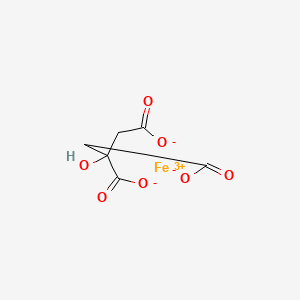Keryx Biopharmaceuticals, Inc. (Nasdaq:KERX), a company focused on bringing innovative medicines to people with kidney disease, today announced that the U.S. Food and Drug Administration (FDA) has approved Auryxia for an additional indication. The approval is for the treatment of iron deficiency anemia in adults with chronic kidney disease (CKD), not on dialysis. Auryxia was originally approved in September 2014 for the control of serum phosphorus levels in people with chronic kidney disease who require dialysis.

With the new indication, millions of people living with chronic kidney disease have the potential to benefit from treatment with Auryxia. This medication is available today in pharmacies and covered broadly by Medicare Part D and commercial insurance providers in the United States.
“More than half of the approximate 30 million people in the United States living with chronic kidney disease are iron deficient, and yet, this is the only tablet that has been developed and approved specifically to address iron deficiency anemia in these patients, who are not on dialysis,” said Steven Fishbane, M.D., chief, division of kidney diseases and hypertension, department of medicine, Northwell Health in Great Neck, New York. “Starting today, physicians can prescribe an oral iron medicine to help people living with this condition, the majority of whom are not being optimally treated.”
“We are pleased with the broad indication permitted by the FDA, as a first-line treatment option for adults with iron deficiency anemia and chronic kidney disease, not on dialysis,” said John Neylan, M.D., senior vice president and chief medical officer of Keryx Biopharmaceuticals. “Physicians and their patients now have a new treatment option to help manage a serious complication of this complex disease.”
Auryxia’s supplemental new drug application (sNDA) approval was based on results from a 24-week placebo controlled Phase 3 clinical trial in 234 adults with stage 3-5 non-dialysis dependent chronic kidney disease. Patients enrolled in the trial had hemoglobin levels between 9.0 g/dL and 11.5 g/dL and were intolerant to or had an inadequate response to prior treatment with oral iron supplements. The starting dose in the study was three tablets per day taken with meals; the mean dose was five tablets per day. Importantly, during the study, patients were not allowed to receive any intravenous (IV) or oral iron, or erythropoiesis-stimulating agents (ESAs). In the study, treatment with Auryxia demonstrated significant increases in hemoglobin levels of >1 g/dL at any point during the 16-week efficacy period for the majority of patients (52.1 percent, n=61/117 compared to 19.1 percent, n=22/115 in the placebo group), a clinically meaningful result. In the trial, ferric citrate was generally well tolerated and adverse events were consistent with its known safety profile. The most commonly reported adverse events in the Phase 3 study were diarrhea (21%), constipation (19%), discolored feces (15%), nausea (11%), abdominal pain (6%) and hyperkalemia (7%). Results were published January 2017 in the online issue of the Journal of the American Society of Nephrology (JASN).

No comments:
Post a Comment